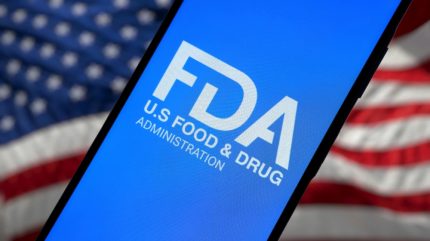
Amid President Donald Trump’s efforts to onshore drug manufacturing and lower drug prices, the US Food and Drug Administration (FDA) has debuted a new pilot scheme aimed at fast-tracking generic approvals.
A prioritisation programme within the abbreviated new drug application (ANDA) framework aims to bolster the US’ standing in the generics market. Through this scheme, developers and manufacturers who test and produce their therapies in the US will be rewarded with faster review times.

Discover B2B Marketing That Performs
Combine business intelligence and editorial excellence to reach engaged professionals across 36 leading media platforms.
This novel pilot scheme covers both generics and biosimilars and will be available to companies manufacturing medicines in the US using domestic active pharmaceutical ingredients (APIs). To be eligible, claimants must also perform bioequivalence testing on American soil.
This could potentially lead to faster generic and biosimilar market access for companies using the scheme.
The agency stated the pilot is designed to “spur and reward investment in US drug manufacturing and research and development and strengthen the domestic pharmaceutical supply chain”.
The FDA is implementing this incentive due to the country’s “overreliance” on foreign drug manufacturing and testing, as only 9% APIs used in US medicines are produced on home soil – with most drug production imports coming from India and China. Trump has frequently highlighted the need to decrease reliance of the US pharma industry on imports.
George Tidmarsh, the agency’s centre of drug evaluation and research (CDER) head, noted that the US’ dependency on imported APIs was creating “risks to both national security and patient access”.
Tidmarsh also claimed that this phenomenon is slowing down the review process and costing taxpayers more money, as foreign inspections take longer to prepare, and are pricier to carry out compared with their domestic counterparts.
According to the CDER head, the pilot prioritisation programme will help to address these issues, while “providing American consumers affordable access to needed medications”.
Trump’s US onshoring ploy
The introduction of the ANDA prioritisation programme follows a wider onshoring push from the Trump Administration, which aims to fortify the US drug supply chain through the construction of pharmaceutical manufacturing facilities across America.
This is being achieved mainly through the “stick” rather than the “carrot” approach, as Trump previously threatened to impose 100% tariffs on companies not “breaking ground” on a US-based drug production facility. Pharma companies have outlaid billions of dollars of expanding their footprint in the country to avoid financial headwinds.
However, this looming tariff threat has yet to come to fruition, despite Trump setting the introductory date for the 1 October via a 25 September TruthSocial post. The 100% tariff scheme is set to remain on ice until the Government can establish drug pricing and infrastructure agreements with key pharma companies.
Despite this, the Trump Administration has broken some ground of its own, signing a drug pricing deal with US pharma giant Pfizer, which exempts the company from tariffs for three years, while patients can access discounted branded drugs via Medicaid or TrumpRx.gov.











